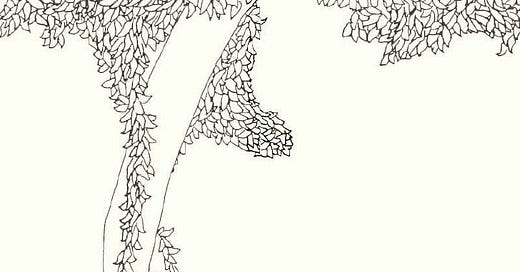The greatest lie ever told about love is that it sets you free. -- Zadie Smith
Zadie Smith wrote this sentence that I have pondered on, journaled about, and discussed with friends in Chapter 12 of On Beauty from the perspective of Kiki. I won’t spoil the book for you, but the experience Kiki is having is that love equals obligation regardless of circumstance which can be constricting. I can understand and empathize with Kiki when it comes to having a love that restrains. I had a love that changed me. It stifled me and buried me deep into the ground where the light could not touch. His love convinced me that I was making a big deal out of nothing. His love proved that if I go looking for the truth, it will sting more than the lies. His love held me captive.
Because I refused to let that be the main character in my love story, I also know love can be other things, too. In its healthiest rendition, love is liberating. I escaped captive love. I blossomed. I learned to love differently. I learned to love ambition and drive before I ever loved the way they looked at me when they thought I wasn’t paying attention. I learned to love compassion for other people before I ever loved the way they rest their hand on my thigh while driving. I love the willingness to stand up against injustice before I will ever love the way their arms swallow me up in an embrace.
And without a doubt, I know love can be everlasting. I had a love that changed me. It was love that returned to me in every lifetime. It was a love that taught me that freedom is found within myself. It made me protective but not guarded.
Controversy aside, one of my all-time favorite books from childhood is The Giving Tree by Shel Silverstein. I’ve read it at least 100 times (probably more). As a PreK teacher, I would read it to my students at the beginning of the year to teach about kindness and generosity. We would also revisit it in April for Earth Day. Each time I read it, I remember being reminded of a lesson from Sunday School about humanity and the relationships we have with people. When you teach young children, a lot of life’s lessons come through in metaphors and moments you think are just for five-year-olds. Years ago, while reading The Giving Tree, I was reminded that you don’t always have to give something to be what a person needs. Comforting someone is not always an easy task. What do I say? What do I do? Do I leave them alone? Do I come over? Do we go out for pizza? Drinks? Why isn’t this distraught person being more specific about how I can help? Sometimes, the best thing and only thing we can do for a loved one who’s hurting is just to be there. Silent. Present. A constant. In many ways, that’s what Tree does for Boy. She’s there every time he returns needing something, and in the end, She’s all he needs to rest. She’s just there for him. It reminds me of the ways I seek to show love in someone’s life.
My personal philosophy is that love is abundant and an unlimited resource, but the time needed to nurture it is not. I am responsible with my love. It nourishes and believes that you can accomplish anything. It rushes over you in the form of affirmations. It is inquisitive and thriving. It’s illuminated and confectious. Those who have it and those who have squandered it know it to be precious.
Thank you for reading The Nomadic Scholar! If you’d like to support beyond or in addition to pledging to a paid subscription, you can:
Like and/or share this post for visibility.
Buy me a map. Figuratively speaking that is. This is a way to support me without committing to a paid subscription.
Book me. I write, but I also speak and facilitate. Check me out.






So beautiful, as an adult the words and the lessons that stick with me are almost always from a well loved story I read as a child